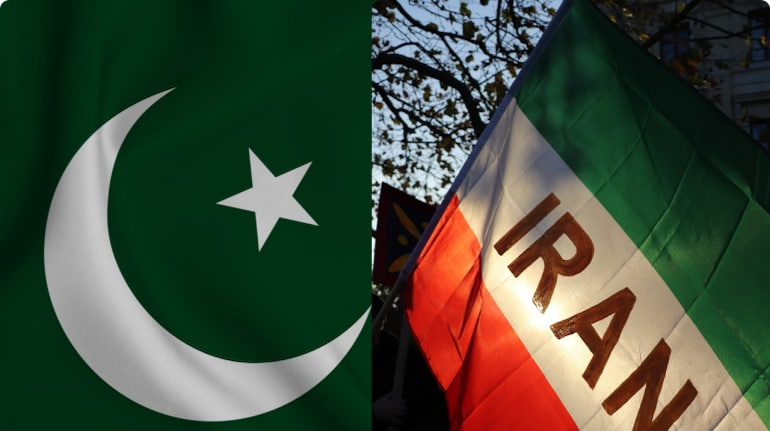



Iran carried out a strike on a Jaish-e-Adl (Army of Justice) base inside Balochistan province of Pakistan on January 17. This is a Sunni extremist organisation that has been carrying on terrorist activities in Iran for several years. The Iranian action brought a strong reaction from Pakistan, which withdrew its Ambassador from Tehran.
This has been followed by a Pakistani strike against Iran at Sarwan in the Sistan Balochistan province of Iran on January 18. This province borders Pakistan and is host to Chabahar port. The latest exchange has to be seen against the background of a long series of terrorist attacks by the Pakistan-based group in Iran.
Iran’s Grievance
A month earlier, Jaish-e-Adl had targeted a police station in Rasak, in the same province, on December 15, 2023. The UN Security Council strongly condemned the attack in which 11 Iranian policemen lost their lives. Jaish-e-Adl claimed responsibility for the attack.
A day before the Pulwama attack in India, on February 13, 2019, 27 Iranian border guards were killed by a Pakistani suicide bomber in the Sistan Balochistan province of Iran. The suicide bomber was identified as a Pakistani national Hafiz Mohamed Ali. The tactics employed in the two incidents were identical. A bus carrying Iranian soldiers was rammed by an explosive-laden car. In the past, the Iranian Majlis (Parliament) has adopted a resolution protesting against attacks from Pakistani soil against Iran. Iran has also written to the United Nations.
What explains Pakistan’s inaction against the use of its soil by non-State actors in attacking a friendly, Islamic nation with which it does not avowedly have any ‘territorial dispute’?
Sectarianism As State Policy
Pakistan has used sectarianism to suppress Baloch nationalism. The domestic fallout of this policy has been the rise of Shia-Sunni tensions. Shia killings are not confined to Balochistan. Some of the worst incidents have taken place in Gilgit-Baltistan, the only Shia-majority territory under Pakistan’s control. The external fallout is terrorism against the Shia neighbor.
Till the Shah’s time, Iran was Pakistan’s biggest bilateral donor. It was Iran, not Afghanistan which provided strategic depth to Pakistan. During the 1965 war, Iran provided sanctuary to the PAF. Under Zia, Pakistan moved towards Saudi Arabia. Domestically, there was a lurch towards the Deobandhi school and patronage of Sunni groups. This brought a reaction from the Shias and a rise of sectarian tensions.
Pakistan government described the Iranian missile strike as a violation of its sovereignty. The Pakistan state has ceded vast areas to extremist groups who use its soil to attack neighboring countries. Pakistan has used airpower to strafe its population in Balochistan. It received help from the Shah’s government which provided Hue attack helicopters for use against the Baloch national movement.
Half a century later, the problem festers. Balochistan is the richest province in terms of natural resources, yet the least developed. Pakistan exploited Sui gas reserves located in the Bugti area of Balochistan. Nawab Akbar Bugti was once considered close to the Pakistani establishment. This author had the privilege of being invited by Sardar Bugti to his home in Quetta in the early 90s. Sardar Bugti was eventually forced to take up arms against the brutal suppression of his people. He was killed by the Pakistan Army in 2006.
Economic Woes Weaken Pakistan
Pakistan has an inflation rate of above 30 percent, while the interest rate exceeds 22 percent. According to the budget figures of the current year presented by the Shehbaz Sharif Government, Pakistan’s debt service payment of Rs.7.303 trillion exceeds the Federal Government’s share of revenue of Rs. 6.9 trillion. This means Pakistan has already slipped into a debt trap where the country has to borrow more even to pay existing debts. The country is preparing for the elections. Does the civilian government make a difference?
The retaliation against a major neighbouring country was ordered even while the caretaker Prime Minister was away in Davos. This shows who is in control. IMF had extended a 9-month $ 3 billion credit facility under the Stand-By Agreement to tide over Pakistan till April 2024. Perhaps, the crisis in West Asia has come to Pakistan’s aid at an opportune time. Pakistan may once again use geopolitics to bail out its economy.
DP Srivastava is a Former Ambassador to Iran and author of Forgotten Kashmir: The Other Side of the Line of Control. Views are personal, and do not represent the stand of this publication.
Discover the latest Business News, Sensex, and Nifty updates. Obtain Personal Finance insights, tax queries, and expert opinions on Moneycontrol or download the Moneycontrol App to stay updated!
Find the best of Al News in one place, specially curated for you every weekend.
Stay on top of the latest tech trends and biggest startup news.